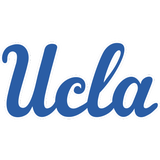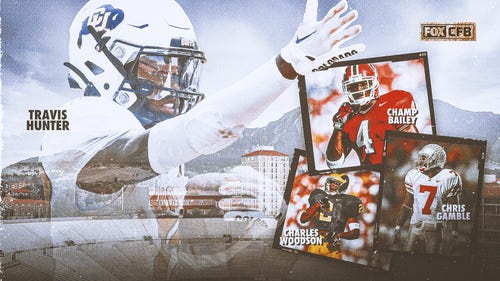
Missouri unrest revives memories of 1998 for former UCLA player

Brendon Ayanbadejo couldn't help but feel a twinge of familiarity -- and an overwhelming sense of pride -- earlier this month when 32 members of the Missouri football team went on strike, announcing that they wouldn't be participating in football activities until university President Tim Wolfe resigned following a string of racially motivated incidents on campus.
That's because 17 years ago, it was Ayanbadejo and his UCLA teammates who tried to make a statement of their own ahead of a monumental matchup with Miami, only to have their own protest shut down by then-Bruins coach Bob Toledo.
At the time, UCLA was riding a 20-game winning streak and was thought to be one of the most exciting teams in the country. The Bruins were ranked No. 2 in the BCS standings with only a trip to the Orange Bowl to face the Hurricanes left on the schedule. The game, originally scheduled for September, was postponed by Hurricane Georges, and with a win, UCLA would have been a lock to play in the inaugural BCS championship game.
However, there was also another issue making headlines in Westwood at the time, and the Bruins players took notice.
Three years earlier, in July 1995, the UC Board of Regents adopted a resolution called SP-1, which "eliminated consideration of race and gender" across the UC system's admissions processes. The following year, the state of California passed Proposition 209, part of which enacted the same rules on a statewide level.
The fall of 1998 marked the first freshman class to be admitted under SP-1. According to a UCLA Civil Rights Project case study published in 2012, black students made up 6 percent of UCLA's applicant pool in 1995 -- they accounted for about 7.5 percent of the state's high school graduates -- with 47.6 percent of those students gaining admission. By 1998, the same group accounted for just 4.2 percent of applications, with only 23.5 percent of those applicants earning acceptance into the university.
"By the time they had ended affirmative action and we got into my senior year, there weren't any African-American students left in the student body," said Ayanbadejo, who is black. "And if you were, you were basically an athlete, and that was sending the wrong message.
"The climate of the school had completely changed from when we first got there to when we were on our way out, and we didn't think that was fair, not only at UCLA but at all the UCs together," Ayanbadejo continued. "A state school should be reflective of the population of the community that it's in, and we felt like we weren't getting the experience that we deserved. We thought that African-Americans and other minorities weren't getting the opportunities they deserved when it came to a state education."
In a similar scene to the one at Missouri, hundreds of students at UCLA initially protested the passing of Prop 209, with demonstrations continuing into 1998. Then in fall 1998, former Olympic sprinter John Carlos -- kicked out of the 1968 Olympics along with fellow American Tommie Smith for their protest following the 200-meter dash final -- met with black players from the UCLA football team to discuss the unrest on campus.
"We talked about, 'What's more important to you? Is being an athlete more important to you or is laying down the foundation for those who come after you more important to you?'" Ayanbadejo recalled. "He said that there's a right way to do things and a wrong way to do things, but if you feel like laying that foundation is more important, then you have to let that voice be heard, and there's a way to do it in a nonviolent way."
Subsequently, Ayanbadejo teamed up with linebacker Ramogi Huma, defensive back Larry Atkins and others and formulated a plan to have the whole team wear black wristbands during the Miami game as a symbol of support for those speaking out against the removal of affirmative action.
"It was definitely not near and dear to (the white players), but they wanted to back us, so you had different levels of support," Ayanbadejo said. "Whereas some players were like, 'Yeah, I've got you, let's do this,' other players were like, 'Well, if this is important to you, then I guess I can go along and do it.' ... But on a certain level, how could they understand how we felt when everyone on campus was like them? At a young age, I don't know how much empathy you have."
Then the Friday night before the game, the team approached Toledo, who did not take the news well.
"We told him that we were going to release a press release before the game talking about our lack of support for Proposition 209 and how we're hoping to overturn it and we're going to wear wristbands," Ayanbadejo said. "Coach Toledo kind of blew a gasket and started crying in front of us and told us UCLA was not a place where you make political statements and so forth. So the players just scrapped it and we went out and played the game."
The next day, UCLA lost 49-45 to Miami despite leading 38-21 late in the third quarter, as Edgerrin James rushed for 299 yards in the Hurricanes' stunning win. As word got out that the Bruins players had originally planned a protest, rumors spread that the team threw the game. Additionally, Ayanbadejo was accused of faking an early injury that kept him out for most of the contest.
"It ended up kind of imploding on us in a way," Ayanbadejo said of the decision to scrap the wristband plan. "But it had absolutely zero effect on the game.
"The week before, Syracuse blew Miami out (66-13), and that was a team with a bunch of good players," Ayanbadejo said. "Anytime a team gets beat up like that, you're going to have the best week of practice of your life and you're going to go out there and perform well. So they showed up and came to play, and whether we wore the wristbands it was never on our minds, the game would have played itself out exactly the same way."
Instead of playing for a national title, UCLA settled for the Rose Bowl, where the Bruins allowed 246 yards rushing to Ron Dayne in a 38-31 loss to Wisconsin. The following season, UCLA went 4-7, and the program has not played in a major bowl game since.
Meanwhile, Prop 209 is still in effect after several unsuccessful legal challenges against it over the years. (In 2001, the UC Board of Regents rescinded SP-1 and its sister resolution, SP-2, but the school is still held to the guidelines set forth by Prop 209.) Additionally, black enrollment numbers remain low across the UC system; in 2006, black students made up 2 percent of UCLA's incoming freshman class, and as of last fall, black students accounted for 4 percent of the school's undergraduate admission.
Still, Ayanbadejo said he doesn't regret the decision to halt the team's protests.
"You can always look back at the past, with hindsight being 20/20, and want to change things, but I think as far as being in a symbiotic relationship and being led by our head coach, I wouldn't change the way that we reacted to it," Ayanbadejo said. "Since (Toledo) was so passionate about not doing it, we adhered to his request.
"I think part of us understood, but didn't agree," Ayanbadejo said of Toledo, who declined an interview request through a spokesperson at Tulane, where he coached from 2007 to 2011. "For him, coaching was his livelihood, and a lot of us were about to move on from UCLA anyway, and this was going to mark him and stay with him, so he took it probably the hardest. So we agreed to disagree."
Instead, Ayanbadejo is content supporting the efforts of players like those at Missouri, which defeated BYU 20-16 on Saturday in its first game since the strike, as they continue to support the same battles UCLA once did.
"You think that you don't have power at a storied university, whether it's Missouri or UCLA or USC or wherever, but you're an integral part of that university's success and you have a lot more power than you think you do when you're 20 years old, 18 years old," Ayanbadejo said. "That team, when they're united as one, can get anything done, can make any changes that they want to make administratively. They have the power to get that done."
You can follow Sam Gardner on Twitter or email him at samgardnerfox@gmail.com.


